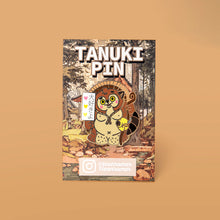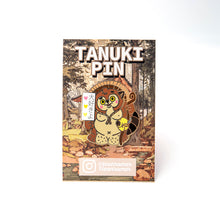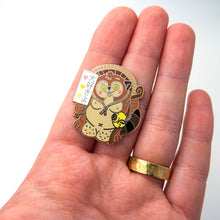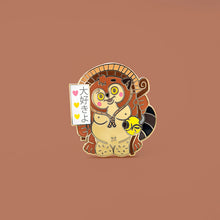APPEARANCE: The tanuki rivals the kitsune for the most well-known animal yokai. Sometimes called the raccoon dog in English, it is an East Asian canine that resembles a badger or a raccoon. These shy nocturnal animals can be found on all of the Japanese isles, and tanuki statues are popular decorations in homes and shops. They are beloved not only for their cuteness, but also for the tales of mischief and trickery associated with them. On a funny side note, the tanuki has super big balls :)
BEHAVIOR: Tanuki possesses powerful magical abilities. They are similar to kitsune in their superb ability to change shape. They have a jovial nature, and delight in playing tricks on humans.
The bottle kanji says: "Eight"
Sake Flask (Tokkuri 徳利). Symbolizes gratitude, thankfulness, and appreciation (kansha 感謝) for one's daily food, and also the merits of eating/drinking in moderation (hara hachibu de 腹八分で) to ensure a long life; also symbolizes the pursuit of a virtuous, principled, and honorable life style (nintoku 人徳). Tanuki’s love of sake is commonly traced back to a stanza from a popular old children's song in the Osaka and Kyoto sake-brewing areas (circa 17th century), in which a small tanuki steals sake from brewers on rainy nights. Details here. The ideogram for eight (hachi 八) on the sake flask is the trusted emblem of the Tokugawa Family
The signs says tanuki: "Daisuki yo" 大好きよ
There are some variations of daisuki da: daisuki da yo 大好きだよ and daisuki yo 大好きよ. The former is a more masculine and more casual way of saying that you (really) like and/or love someone, whereas the latter (without the "da") is more feminine. In general, Japanese culture is much more subtle and indirect than English and Western culture. In other words, Japanese people tend to abide by the "show, don’t tell" rule when it comes to expressing their love. So saying you like somebody is like an indirect way of saying you love somebody.
__________________________
DETAILS
🦝 1.5" inch gold hard enamel pin ( 38,1 mm)
🦝 Gold metal
🦝 Screen printed details
__________________________
BEHAVIOR: Tanuki possesses powerful magical abilities. They are similar to kitsune in their superb ability to change shape. They have a jovial nature, and delight in playing tricks on humans.
The bottle kanji says: "Eight"
Sake Flask (Tokkuri 徳利). Symbolizes gratitude, thankfulness, and appreciation (kansha 感謝) for one's daily food, and also the merits of eating/drinking in moderation (hara hachibu de 腹八分で) to ensure a long life; also symbolizes the pursuit of a virtuous, principled, and honorable life style (nintoku 人徳). Tanuki’s love of sake is commonly traced back to a stanza from a popular old children's song in the Osaka and Kyoto sake-brewing areas (circa 17th century), in which a small tanuki steals sake from brewers on rainy nights. Details here. The ideogram for eight (hachi 八) on the sake flask is the trusted emblem of the Tokugawa Family
The signs says tanuki: "Daisuki yo" 大好きよ
There are some variations of daisuki da: daisuki da yo 大好きだよ and daisuki yo 大好きよ. The former is a more masculine and more casual way of saying that you (really) like and/or love someone, whereas the latter (without the "da") is more feminine. In general, Japanese culture is much more subtle and indirect than English and Western culture. In other words, Japanese people tend to abide by the "show, don’t tell" rule when it comes to expressing their love. So saying you like somebody is like an indirect way of saying you love somebody.
__________________________
DETAILS
🦝 1.5" inch gold hard enamel pin ( 38,1 mm)
🦝 Gold metal
🦝 Screen printed details
__________________________








